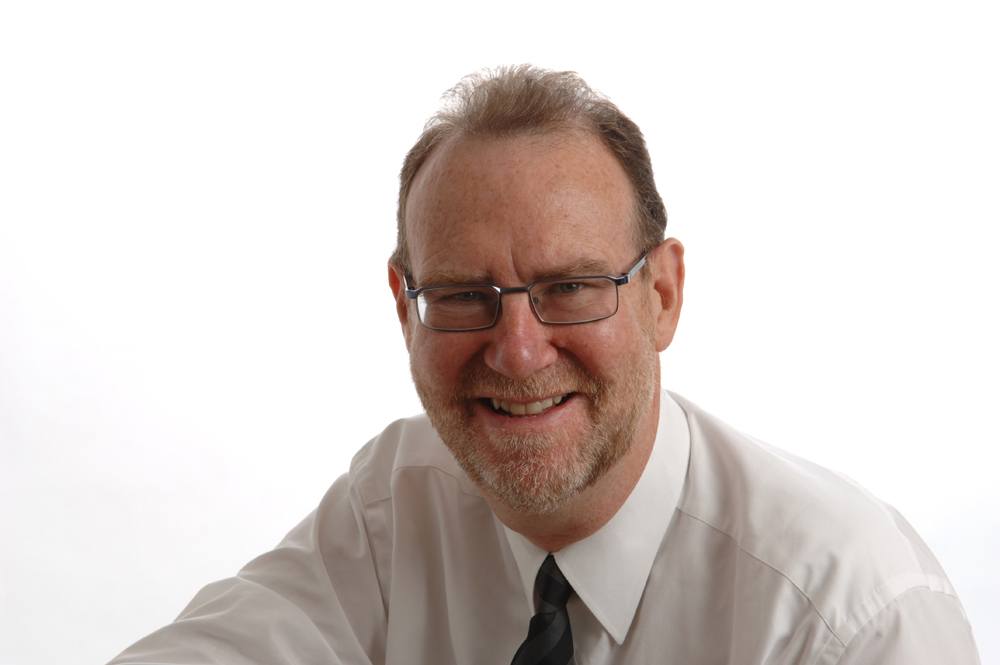“I
felt pretty outraged,” says Archway-based Malcolm Allen – speaking softly, nevertheless – over a morning cup of coffee at Saint Espresso. “I’d been asked to be a godfather to my great niece, and at the baptism the priest just mumbled his way through, seemingly bored stiff with the proceedings. As an atheist, I thought, if the Catholics aren’t any good at creating a decent ceremony, then who is?”
Finding an answer to that question set him on the path to becoming a qualified Humanist Celebrant, someone who offers an alternative to the traditionally structured religious-leaning funeral, while upholding the occasion’s symbolic and emotional importance.
Malcolm’s awareness of how crucial ritual is for us all, regardless of belief system, actually began during his time as Dean of Studies at the Tavistock and Portman Clinics, a role that included presiding over the annual graduation ceremonies.
“The students work incredibly hard for their qualifications, so graduating in front of the family and friends who have supported them through it, is a really poignant moment,” he says. “I felt I owed it to them to give voice to the powerful meaning of the occasion, so I spent ages on the words and the whole rhythm of the event, to try to give it all a certain magic.”
Us humans express a deeply primal need when we come together to mark life’s big transitions, be they birth, coming of age, marriage – and ultimately death, too. As weddings are increasingly seen as fully customisable creative events, so too are funerals gradually being freed of often-unwanted formalities.
Change is slower, as the inevitable clouds of sadness in the immediacy of bereavement, plus a perceived lack of time for planning, often lead to off-the-shelf memorials. But where the church once stepped in as a source of comfort and familiarity at such times, it makes less sense in an era where less than half of us now identify as ‘religious’. This is where Humanists UK – for whom Malcolm is an accredited celebrant after a rigorous training – provide real alternatives.

“Humanists aren’t new, we’ve been around for decades, right back to the great Victorian rationalist luminaries who all looked like George Bernard Shaw,” he smiles. “But there’s a thoroughly modern new generation involved now, catering to those who want a more personalised ceremony, something specifically about their loved one and the meaning of their life, rather than looking upwards and outwards.”
So Malcolm will have an initial meeting with the family and friends to shape a service that captures the real essence of the person. It will encompass elements of mourning, sadness and saying farewell, but also of celebrating the life lived, too, with a much wider variation of how these essentials are handled.
“I appreciate that there’s a great strength to religious ceremony in the emotional resonance of repetition,” he says. “Knowing that the same words have been spoken for hundreds of years is calming. It takes the emotion out, but that also takes the focus away from the person who has died and onto the institution, and that’s not for everyone.”

With the entire funeral industry modernising, something Malcolm attributes to both a greater influence of women and a drive towards offering better value and more options, there are certainly more ways than ever to personalise a send-off.
Woodland eco-burial is increasingly popular, as is direct cremation, which takes place soon after death rather than a costly, often lengthy wait for a crematorium slot. The ashes then play a role in the ceremony, which also eases pressure on the family when deciding the nature and content of the gathering.
By being non-denominational, the services Malcolm puts together actually end up being more inclusive of the full spectrum of beliefs. “It’s my job to make sure everyone feels equally included,” he says. “I don’t impose anything and can give people a moment to reflect on whatever spiritual beliefs they may personally hold.”
With this new freedom for expressing our grief more personally, society’s wider taboo for talking about death is lifting too. Funerals aren’t whispered about, their discussed in newspapers as consumer products. And while this presents some new moral challenges, overall we are experiencing a more healthy relationship with one of life’s most important events – the end of it.
“The essence of what I do is to touch on the meaning of a person’s life,” says Malcolm about his role. “If that means a themed funeral with everyone wearing football tops, well that’s fine, but usually it’s about simpler things – finding the right readings, poetry and music.
Interestingly, although people often dispense with traditional religious hymns, a lot of the modern music chosen can still become quite predictable. There’s a definite list of favourites, so even secular ceremonies can start to be quite rigidly defined. But as long as it does the business and helps creates a powerful ritual experience, then that’s fine by me.”

